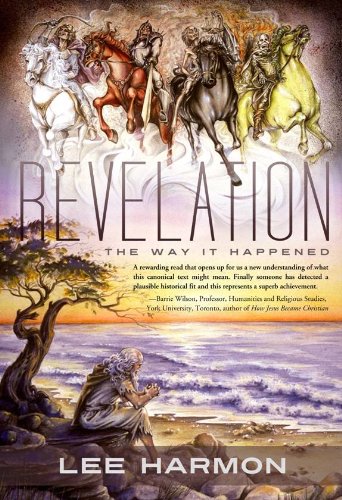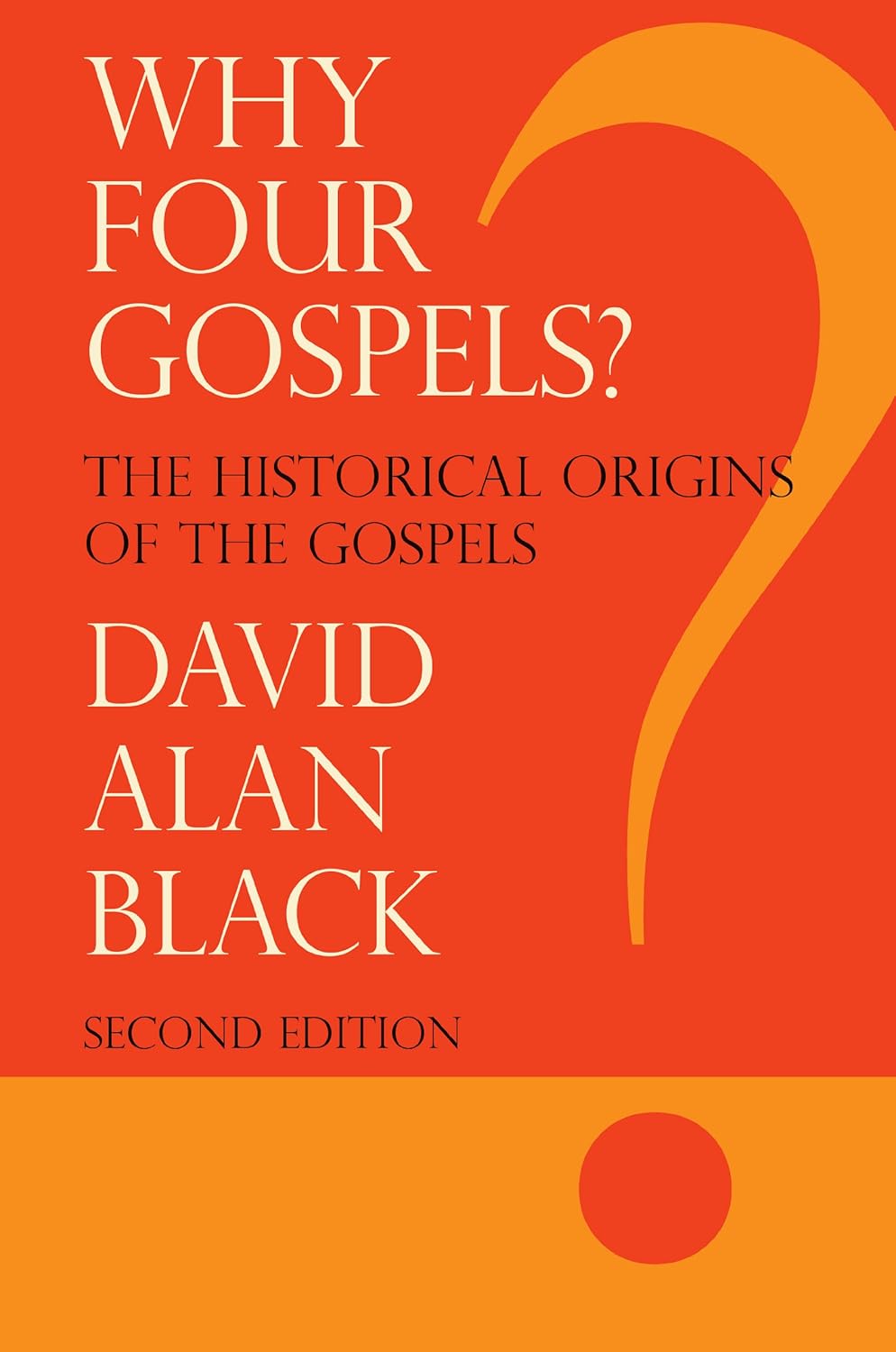1 Corinthians 14:34-35, Gals, you gotta be quiet in here!
For you can all prophesy one by one, that all may learn and all may be encouraged. And the spirits of the prophets are subject to the prophets. For God is not the author of confusion but of peace, as in all the churches of the saints. [Let your women keep silent in the churches, for they are not permitted to speak; but they are to be submissive, as the law also says. And if they want to learn something, let them ask their own husbands at home; for it is shameful for women to speak in church.] Or did the word of God come originally from you? Or was it you only that it reached? If anyone thinks himself to be a prophet or spiritual, let him acknowledge that the things which I write to you are the commandments of the Lord. But if anyone is ignorant, let him be ignorant.
//I apologize for the length of today’s passage, but it really needs to be quoted in full. See the section enclosed in brackets? Verses 34 and 35? Textual scholars are all but certain that this passage was not written by Paul’s own hand but was added later. Read the passage again, omitting the bracketed section. Now it reads seamlessly.
These two verses, inserted in to an authentic Pauline letter, radically contradict Paul’s stance about women in the church. Isn’t it Paul who wrote “there are no more distinctions between Jew and Greek, slave and free, male and female?” In fact, Paul established many female leaders in his churches: Junia, Phoebe, Prisca, Tryphaena and Tryphosa.
Book review: Revelation: The Way it Happened
I thought it would be fun to present a review of my own book that I received while it was still in the galley stage. I think Fran Lewis was the very first to read the published version.
Fran is a sweetie who probably reads about a book a day, and who takes her commitment to provide positive exposure seriously. Authors, she should be on your list for sure!
As this was my first book about religion (I had published a couple of poker books before this), Fran’s review was fun to read, opening my eyes to how differently readers perceive a book from the way the author imagines it.  Unfortunately, the review is very long for a reprint, so I’ll limit my post to a few words. Fran gives a synopsis of the book and its themes, and then she closes with this paragraph:
Unfortunately, the review is very long for a reprint, so I’ll limit my post to a few words. Fran gives a synopsis of the book and its themes, and then she closes with this paragraph:
“Author Lee Harmon provides an accurate detailed account of the events in the Book of Revelation through the words of Samuel, the questions of Matthew and the many explanations both from the book and his own commentaries. Taking the reader through the many sections and verses of the Book of Revelation itself, the reader can visualize, experience and understand the time, the people, the culture and the writings of John and its message. I can truly say that I have a better understanding of many of the events than I did before reading this book and the hardships, wars, sacrifices and more that both the Jewish people and Christians endured. Although this book is geared for adults only, I think that children will understand the discussion between father and son and would definitely read and understand it.”
Fran can be found in a multitude of places, but here’s her blog: http://gabina49.webs.com/home.htm

Matthew 28:16-18, Where did the Twelve first encounter the risen Jesus?
Then the eleven disciples went to Galilee, to the mountain where Jesus had told them to go. … Then Jesus came to them and said, “All authority in heaven and on earth has been given to me.
//Nowhere does the Bible contain more contradicting stories than in the resurrection appearances. Take, for example, the question of where Jesus first appears to the Twelve.
For Matthew, it happens on a mountain in Galilee. Jesus, after rising from the dead, instructs the women who first encounter him to tell the disciples he will meet them in Galilee. Immediately, they head for the hills, and Jesus meets up with them there.
For Luke and John, the meeting takes place in Jerusalem. There, according to John, Jesus dispenses the Holy Spirit when he greets them. Luke’s version differs a little: When Jesus meets the Twelve, he explains the Spirit will come along shortly … actually, forty days later at Pentecost. Jesus tells them, “I am going to send you what my Father has promised; but stay in the city until you have been clothed with power from on high.” Note the command to remain in Jerusalem, a direct contradiction of Matthew.
Can Mark settle the argument of where they met? No, sorry, in Mark there is no meeting at all! Mark’s resurrection chapter originally ended with verse eight (the margin comments in your Bible may confirm this), with the women who discovered the empty tomb running away afraid, telling no one. Nobody sees Jesus; he’s just gone. Before you discount Mark’s version out of hand, remember that all throughout Mark, the disciples just don’t catch on; they never do grasp the significance of Jesus. Mark’s mysterious ending fits the story he tells, leaving it up to us to see if we understand.
Little wonder there is so much argument between Bible scholars about the nature of the resurrection!
Book review: Seeing the Good in Unfamiliar Spiritualities
by Gethin Abraham-Williams
★★★★★
If Gethin is not a poet, then certainly his love of poetry shines. Verse mixes with prose to lend richness throughout. I think this is a book which should be read outdoors, in the squares of our busiest cities or beside the brooks of our remotest parks.
It’s about God, our perception and experience. It meanders thoughtfully around the topics of faith, mercy, sexism, and hell, on its journey to “reaching middle ground” between the various world religions. The stability of our society rests on “mutual respect, and a genuine attempt to understand and to appreciate the other, to detect the voice of God in the other, and to pursue a thoughtful, caring life with the other.”
Religious thought is evolving, but the evolution of our understanding of God has been a gradual process, and we are by no means at the end of it. Enchantment is coming back into vogue, and society may be experiencing sacralization rather than secularization. Many of us yearn to “feel the Greatness and the Glory, and all those things that begin with a Capital Letter,” but we’re unsure how to proceed. The closer we approach the mystical (though not the magical, that stuff is evil, right?) the further away we appear.
Gethin’s gimmick of threading the story of Ezekiel throughout the discussion is what makes the book real. I laugh out loud as I write this, but it is so; Gethin doesn’t feed us the wild-eyed, theatrical Ezekiel most of us avoid, but the human, struggling-to-understand-it-all Ezekiel. The Ezekiel strolling mournfully beside Babylon’s Tigris, dreaming of Israel’s Jordan. For all his extraordinary visions, Ezekiel never actually gets to see God.
This book is a joy to read, and one to fill our dreams with hope.

Matthew 6:13, For Thine is the Kingdom
And lead us not into temptation, but deliver us from evil: For thine is the kingdom, and the power, and the glory, for ever. Amen.
//Today’s verse concludes the Lord’s Prayer as recorded in the book of Matthew. But this final stanza, beginning with For thine is the kingdom, isn’t original to the prayer. You won’t find it in Luke’s rendition, and you won’t find it in our earliest copies of Matthew. It was added sometime later.
Why did it get added? I can offer an opinion, but it’s only an opinion.
First, it must be recognized that this is an eschatological prayer. That is, it anticipates the arrival of God’s kingdom on earth; presumably with the return of Jesus. So, likewise, the final pre-edited stanza: Lead us not into temptation, but deliver us from evil. Many scholars recognize this as a plea for rescue from the trying times that must precede the Lord’s arrival. Readers of Paul’s letters and the book of Revelation will know what I mean: Jews and Christians both anticipated a period of suffering, sometimes called the Woes of the Messiah, before the inauguration of God’s kingdom, God’s era of righteous rule on the earth.
But the prayer ends rather abruptly, and on a dark note. Evil. Something like, Please, God, guide us safely through that awful time, so that we might participate in the coming age of plenty … when debts will all be forgiven, and there will be bread to eat every day, and your righteous rule will extend your kingdom over the entire earth.
Then comes the new addition to the prayer, speaking of power and glory forever. Gently redirecting us away from our fears and dreams of the future, with one very important word: is. While all of the rest of the prayer is futuristic, looking ahead to a better time, this little word “is” suddenly invites participation in the glorious kingdom of God now. Perhaps it was added by someone who recognized the silliness of living entirely in anticipation of a future day, encouraging us instead to grasp what is ours now through the goodness of God. It is a shift in understanding of what the Kingdom of God is … from a future arrival of a Messiah to a living, worldwide Christian movement, already under the reign of Jesus.
Book review: Why Four Gospels? The Historical Origins of the Gospels
by David Alan Black
★★★★★
Very good. This is a concise, well-organized explanation of the historical and textual arguments for David Black’s Fourfold-Gospel Hypothesis and an early writing of the Gospels. It’s a conservative treatment; David’s purpose in writing is to “renew, restore, and strengthen faith in the truth of the Gospels by providing scientific support for the church’s continuous teaching on their apostolicity and historicity.
I have been looking for a simple guide to the argument for apostolic authority and the traditional ordering of the Gospels, and this one does the trick. Relying heavily on the testimony of the early church fathers, David presents a reasonable scenario for the development of the Gospels. It is not David’s claim that the fathers of the church solve the synoptic problem; it is that any approach that rejects their testimony is lacking. A hypothesis is needed that does justice both to critical scholarship and to the integrity of the church fathers.
Matthew’s Gospel came first, written in Greek. It was a response to a need within the early church (years 33-44) to preserve the story of Jesus. But Matthew’s version, while highly respected in Jerusalem circles, didn’t fit the bill for Gentile readers, and Paul commissioned Luke to rework the Gospel message for the benefit of his own Greek churches. Luke was able to “change the whole emphasis of the Gospel into a demonstration of the good fortune of the Gentiles in being given equality by Jesus with the original chosen people.”
Peter happened to be in Rome at the time of Paul’s captivity, so Paul met with Peter and asked his advice about Luke’s new gospel. Peter was happy to compare the two (Luke and Matthew), and since it was his plan to give a series of speeches in Rome, he took both together and, with Mark in attendance, fitted them into five lectures which Mark preserved in writing. These lectures are recorded in Mark 1:2-3:19, 3:20-6:13, 6:14-10:1, 10:2-13:37, and 14:1-16:8. Peter’s intent was to refer only to those portions of Jesus’ life of which he had been an eyewitness and could personally vouch for. Thus, there exists no birth stories or resurrection narratives in Mark.
Those who listened to Peter were delighted with what they heard, and requested from Mark copies of what Peter said. Peter allowed this, and Mark’s Gospel was birthed. The final twelve verses of the gospel (which are not in the earliest manuscripts) were surely added by Mark at a later date, when he decided to publish the gospel as an act of piety to the memory of Peter.
That’s the way David fits the puzzle pieces together, relying heavily upon the patristic evidence, and it explains the internal data “at least as well as the Markan priority hypothesis, and often much better.” It also explains the need for three Synoptic Gospels. David then goes pericope-by-pericope through the Gospels explaining how Mark was pieced together from Matthew and Luke, and while I didn’t take time to study his analysis, it’s nice to know he did his homework.
While I’m not a conservative believer and have no issue with Markan priority (as proposed by the popular solution to the synoptic problem), and while a number of issues remain unresolved (such as Matthew’s apparent familiarity with the events of 70 CE), I found this a very helpful review of the patristic evidence for traditional beliefs.

Job 1:11-12, Satan Wins a Bet
But put forth thine hand now, and touch all that he hath, and he will curse thee to thy face. And the LORD said unto Satan, Behold, all that he hath is in thy power; only upon himself put not forth thine hand. So Satan went forth from the presence of the LORD.
//Ever play that kid’s trick on your little brother, where you say “Bet you five cents I can hit you softer than you can hit me!” So, he brushes your shoulder with a gentle little fist-kiss, and when your turn comes you haul off and whack him silly. “Oops, guess you won, here’s your nickle.”
Take the story of Job, and the friendly little wager between God and Satan. God, with all his foreknowledge, hardly needs to run a contest to find out what Job will do. God knows before he begins who’s gonna win this bet. And Satan’s no dummy either, I don’t think; he surely knows God can see the future. He knows he doesn’t have a ghost of a chance in this bet.
So who’s playing who? It sure seems to me that God gets played. Satan gets to torment Job all he wants, with God’s blessing, and never offers so much as an apology. Not even an “Oops, here’s your nickle.”
Acts 16:9, The First He-She?
During the night Paul had a vision of a man of Macedonia standing and begging him, “Come over to Macedonia and help us.”
//Paul, traveling around preaching Jesus, one day received a vision of a “man of Macedonia” calling him there. Paul concluded that God wanted him to preach in Macedonia, and he set off on a journey there.
But when Paul arrived, he found no man at all! He went “to the river,” where he expected to find Christians gathered to pray, and instead he found a cluster of women. Immediately recognizing the women as the reason for his visit, Paul sat down with them and began to teach.
One of those listening was a woman named Lydia, a dealer in purple cloth from the city of Thyatira, who was a worshiper of God. The Lord opened her heart to respond to Paul’s message.
Lydia invited Paul and his companions to stay at her house, and the Lord “opened her heart.” The “man of Macedonia” turned out to be a woman! Well, dreams can be a little hazy!
Book review: Blurring the Lines
by Jerry Zehr
★★★
Fun, short little book! Thomas, a naive young man from an Amish heritage, moves to Los Angeles hoping to pursue a career in acting. The Amish connection isn’t overplayed; Thomas is a pretty normal fellow, but breaking into this business is tough, and earning enough money on the side to survive proves difficult. He falls in with the wrong crowd, and his innocence plays against him until his experiences begin to bring more than shame; they land him in danger, both for his life and with the law.
Thomas is lucky, though, to have developed a special friendship with a man who encourages and provides spiritual guidance, while downplaying Thomas’s mistakes. We can assume Thomas would drift ever deeper into darkness were it not for this mysterious acquaintance. The ending is surprising and memorable, though in retrospect, I really should have gathered enough clues during the story to guess the climax.
This is Christian literature, though Zehr’s outlook is not conservative and the language is a bit rough. Part of Thomas’s growing-up includes learning to look at God differently. Nothing monumental or overly deep, though, and the story’s brevity prevents a fully-developed plot. This is a good book for teens.
On the downside, the book starts out in quite passive prose, so it doesn’t grab you from the opening. Do keep reading! Also, I was given a pre-edited version, and a few editing and formatting corrections would be expected for the published version.
Genesis 11:6-7, Rebuilding the Tower of Babel
The LORD said, “If as one people speaking the same language they have begun to do this, then nothing they plan to do will be impossible for them. Come, let us go down and confuse their language so they will not understand each other.”
//One day, the inhabitants of the earth decided to build a tower up to heaven. Unfair, they felt, that the gods frolicked up in heaven while they were stuck on the earth. So they put their mind and muscle to the task, and started building.
God panicked. Mankind, if they spoke the same language and worked together as one, could accomplish anything! They could invade the privacy of the gods! So, God confused their languages, and scattered the earth’s inhabitants around the globe. That’s why, today, there are so many languages.
There came a day, however, when God changed his mind. He decided it would be nicer to share his living space with his creation, and set about reopening the channel from heaven to earth. He came down and set things right. You know this as the Day of Pentecost.
Acts 2:2, Suddenly a sound like the blowing of a violent wind came from heaven and filled the whole house where they were sitting.
It’s Babel’s ending being reversed! Everyone, filled with the Holy Spirit, began to speak in other tongues as the Spirit enabled them. Parthians, Medes, Elamites, Mosopotamiams, Judeans, Asians, Phrygians, Egyptians, Cretans, Arab, Romans … all were able to understand each other. Amazed and perplexed, they asked each other, “What does this mean?”
Perhaps the answer is this: Once again, as one under the Spirit, mankind can do anything they set their mind to.















 354 Circles
354 Circles
 603 Goodreads Friends & Fans
603 Goodreads Friends & Fans

 Hello! I'm an author, historical Jesus scholar, book reviewer, and liberal Christian, which means I appreciate and attempt to exercise the humanitarian teachings of Jesus without getting hung up on any particular supernatural or religious beliefs.
The Bible is a magnificent book that has inspired and spiritually fed generations for thousands of years, and each new century seems to bring a deeper understanding of life’s purpose. This is true of not only Christianity; through the years, our age-old religions are slowly transforming from superstitious rituals into humanitarian philosophies. In short, we are growing up, and I am thrilled to be riding the wave.
I avidly read all thought-provoking religion titles. New authors: I'd love to read and review your book!
Hello! I'm an author, historical Jesus scholar, book reviewer, and liberal Christian, which means I appreciate and attempt to exercise the humanitarian teachings of Jesus without getting hung up on any particular supernatural or religious beliefs.
The Bible is a magnificent book that has inspired and spiritually fed generations for thousands of years, and each new century seems to bring a deeper understanding of life’s purpose. This is true of not only Christianity; through the years, our age-old religions are slowly transforming from superstitious rituals into humanitarian philosophies. In short, we are growing up, and I am thrilled to be riding the wave.
I avidly read all thought-provoking religion titles. New authors: I'd love to read and review your book!
 Hi! While Lee writes the articles and reviews the books, I edit, organize, and maintain the blog. The views expressed here are Lee's but I'm his biggest supporter! :-)
Hi! While Lee writes the articles and reviews the books, I edit, organize, and maintain the blog. The views expressed here are Lee's but I'm his biggest supporter! :-)
Connect With Me!